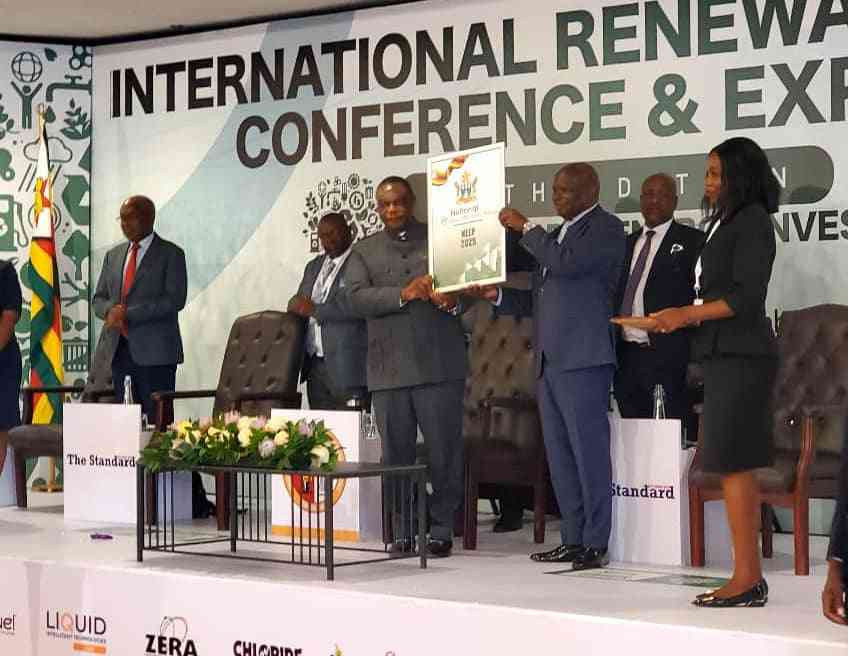
THE government’s recently launched National Energy Efficiency Policy seeks to reduce the country’s energy intensity to the global average target of 3,4 megajoules per gross domestic product (GDP) power purchasing parity (PPP) from 151 megajoules.
This means that for every unit of the GDP measured in PPP, Zimbabwe consumes 151 megajoules of energy, against the global average of 3,4 megajoules.
Consequently, the economy consumes a huge amount of energy to produce each unit of economic value because 95,37% of Zimbabwe’s power comes from just two sources.
These are the Kariba South Hydro and Hwange Thermal Power stations.
The new policy was launched last week by Vice-President Constantino Chiwenga at the International Renewable Energy Conference and Expo hosted by The Standard in conjunction with the Ministry of Energy and Power Development.
The Standard is published by media house Alpha Media Holdings (AMH), together with NewsDay and the Zimbabwe Independent. AMH also operates the tele-radio station Heart & Soul TV.
“The policy aims to reduce the current energy intensity of 151 megajoules per GDP PPP to the global average target of 3,4 megajoules per GDP PPP by the year 2030 to achieve the SDG 7,3 target,” the policy document read.
“This target calls for concerted efforts to address all inefficiencies within our productive economic sectors through investing in processes, equipment, technologies, and behaviours that reduce energy consumption to improve productivity and competitiveness.”
- ‘Zim’s retailers deserve a wage subsidy’
- ‘Zim’s retailers deserve a wage subsidy’
- Africa’s debt conundrum
- High input costs could hit crop output
Keep Reading
The new plan is also meant to support the 2019 National Renewable Energy Policy that is far from achieving its goal of an installed renewable energy capacity of 1 100 megawatts, excluding large hydro, by year end.
The ministry said the policy sought to attain energy efficiency in all sectors of the economy and society.
“The policy aims to achieve several goals, including reducing energy consumption, establishing energy efficiency data, providing financing for energy efficiency projects, promoting establishment and growth of energy servicing companies (ESCOs), offering incentives for the sector, implementing a regulatory framework and mandating energy efficiency standards, labels and codes,” it said.
“This policy aims to attain energy efficiency in all sectors of the economy and society. The primary objectives of the policy are: Promote energy use reduction across all sectors: Establish an integrated strategy to significantly reduce energy consumption in residential, commercial, industrial, transport, and agricultural sectors, ensuring effective socio-economic development.”
The ministry said the aim was also to foster ESCO development and technological innovation.
“… to encourage the establishment and growth of Energy Service Companies to drive investment in energy efficiency initiatives, while supporting the development of local energy-efficient technologies and enhancing capacity through standards, codes practice, and specifications for equipment and systems,” the policy read.
The policy will also advance environmental and social goals and contribute to greenhouse gas emission reductions while integrating gender, economic, environmental and safety considerations into energy efficiency initiatives and promoting international co-operation.
The ministry wants to create an enabling environment for financing energy efficiency through the policy.
“… to foster access to local, regional, and international funding and financial mechanisms for energy efficiency activities, projects and programmes, while establishing robust research, databases and statistics to inform decision-making and track progress.”
“Implementing an economy-wide energy audit policy across all productive sectors will provide crucial baseline information to enhance the country’s energy efficiency framework, strategy and implementation plan,” the policy noted.
The ministry said the availability of data and information was crucial in enabling informed decisions on actions to overcome the pertinent energy inefficiencies.
“Understanding the country’s emerging energy efficiency, renewable energy industry, market development and growth is critical to realising the country's potential and scaling up investment opportunities,” it said.
“The availability of profound data and information is crucial in enabling informed decisions on actions to overcome the pertinent energy inefficiencies and climate change challenges. Addressing these challenges by fostering economy-wide co-operation accelerates results and triggers growing sustainable energy markets.”










